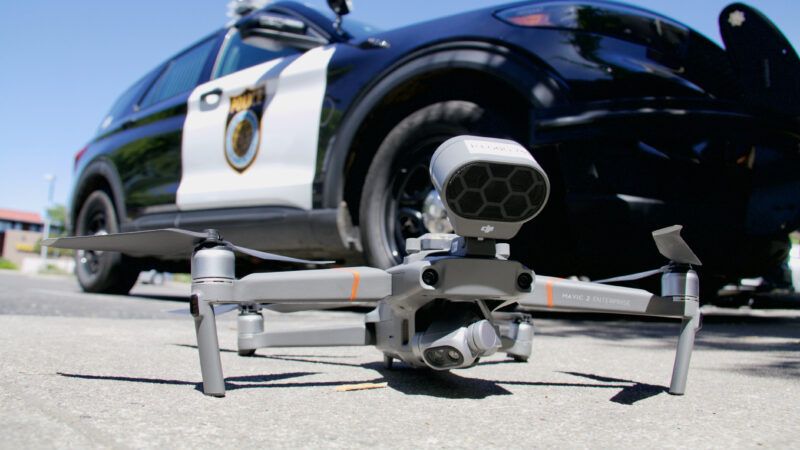Michigan Supreme Court Allows Evidence Collected by Drone, Without a Warrant
The court declined to address whether the search violated the Fourth Amendment and merely held that the evidence could not be excluded in a civil case.

Last week, the Michigan Supreme Court ruled unanimously that evidence collected illegally could still be used to enforce civil penalties.
Todd and Heather Maxon keep cars on their five-acre property in Long Lake Township. The township sued in 2007, alleging that the Maxons were violating a zoning ordinance by keeping "junk" on the property. When the Maxons fought back, the township agreed to drop the charges and reimburse attorney fees, and in exchange, the Maxons would not expand the number of cars on the property.
Township officials heard that the Maxons' collection was growing, but the cars were hidden from the road, so they had no way to verify it without a warrant—or so you would think. Instead, officials hired a company to surveil the property with aerial drones on three different occasions. Finding that the collection had indeed expanded, the township sued the Maxons for violating the agreement.
The Maxons filed to suppress the drone evidence as a Fourth Amendment violation, since the township never obtained a warrant. The case made its way to the Michigan Supreme Court, which heard oral arguments in October. The court had previously remanded the case back to the Michigan Court of Appeals to determine "whether the exclusionary rule applies to this dispute." The exclusionary rule holds that evidence obtained illegally cannot be introduced at trial.
Last week, in a unanimous decision, the Michigan Supreme Court sided with the township. "The exclusionary rule may not be applied to civil enforcement proceedings that effectuate local zoning and nuisance ordinances," wrote Justice Brian Zahra, adding that "the costs of excluding the drone evidence outweighed the benefits of suppressing it."
"Generally, the exclusionary rule operates to exclude or suppress evidence in certain legal
proceedings if the evidence is obtained in violation of a person's constitutional rights," Zahra wrote. "Caselaw, however, has never suggested that the exclusionary rule bars the introduction of illegally seized evidence in all proceedings or against all persons. Given the history of the rule, it is only applicable when the objective of deterring wrongful law enforcement conduct is most effectively met."
The court of appeals originally determined that the search had violated the Fourth Amendment before the higher court sent it back for further consideration. "Because the Supreme Court limited our review to the exclusionary rule's role in this dispute, we proceed by assuming that a Fourth Amendment violation occurred," wrote Chief Judge Elizabeth Gleicher of the Michigan Court of Appeals.
But the state supreme court punted on that issue: "Because the exclusionary rule did not apply in this civil proceeding to enforce zoning and nuisance ordinances," Zahra wrote, "the Court declined to address whether the use of an aerial drone under the circumstances of this case was an unreasonable search or seizure for purposes of the United States or Michigan Constitutions."
In other words, the state's highest court decided that it was irrelevant whether the search violated the Fourth Amendment because the evidence would not be excluded either way, so long as the search was conducted to investigate civil and not criminal violations.
Robert Frommer, an attorney with the Institute for Justice (I.J.), a public-interest law firm that represents the Maxons, calls the Supreme Court's decision "wrong and dangerous," saying that it effectively endorsed unconstitutional searches "as long as the person searching does not have a policeman's hat."
"The Fourth Amendment is not about the police, it's about the government," Frommer tells Reason. "The Michigan Supreme Court failed to act, but the Legislature should fix this loophole to secure Michiganders' rights."


Show Comments (34)